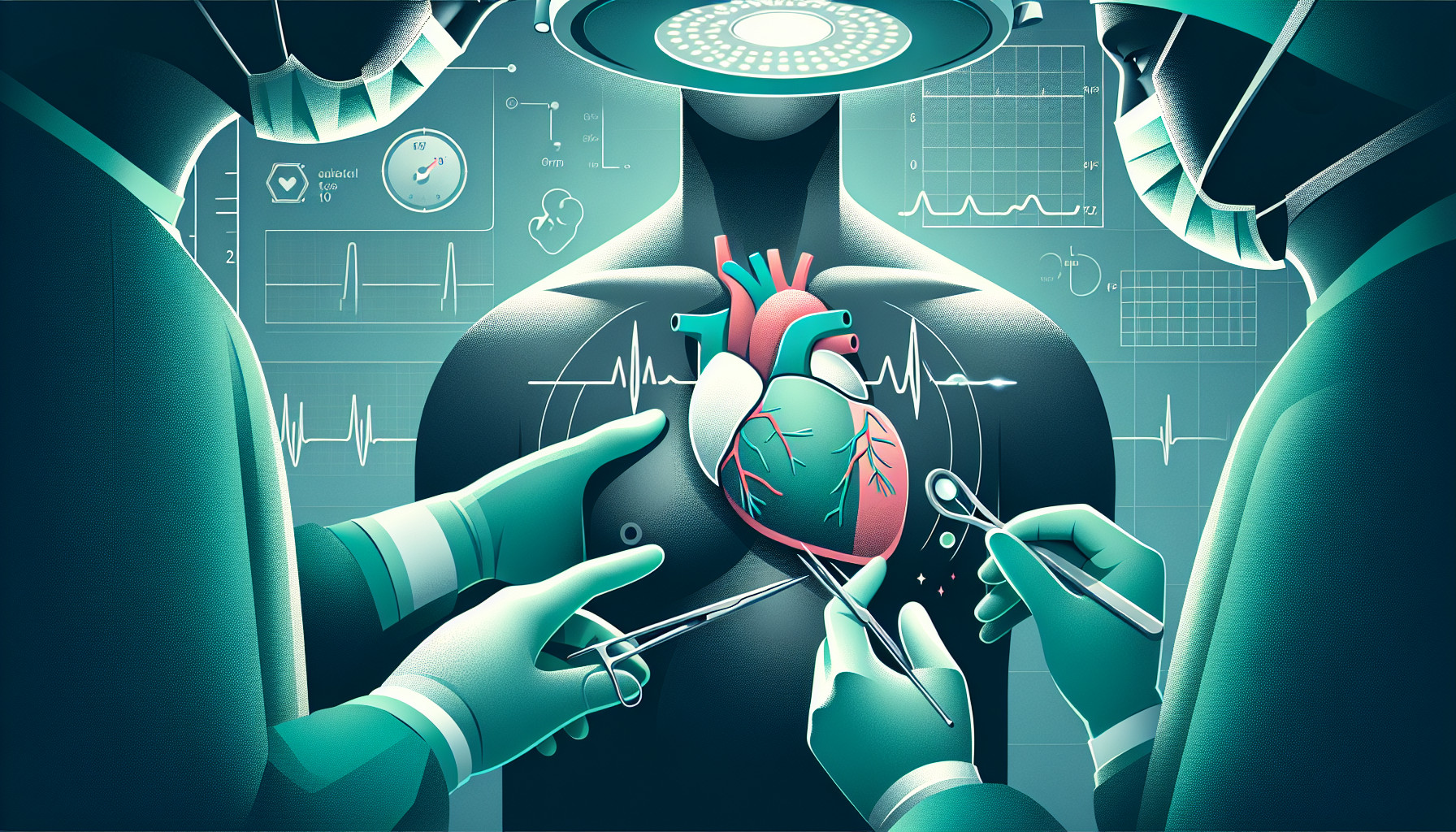Our Summary
This research paper discusses the use of cardiac CT (a type of heart scan) in examining and understanding three critical parts of the heart: the left ventricular outflow tract, the mitral valve, and the procedures involved in transcatheter mitral valve replacement. The paper likely includes details on how these scans can help identify problems and guide treatments in these areas. In a transcatheter mitral valve replacement, a new valve is inserted into the heart without the need for open-heart surgery, instead using a catheter (a thin tube) to guide the new valve into place.
FAQs
- What is mitral valve replacement?
- What is the role of Cardiac CT in mitral valve replacement?
- What is the significance of the left ventricular outflow tract in transcatheter mitral valve replacement?
Doctor’s Tip
One helpful tip a doctor might tell a patient about mitral valve replacement is to follow a healthy diet and exercise regularly to maintain overall heart health and support the function of the new valve. It’s also important to attend regular follow-up appointments and take any prescribed medications as directed to ensure the success of the procedure.
Suitable For
Mitral valve replacement is typically recommended for patients with severe mitral valve disease, such as mitral stenosis or regurgitation, who have symptoms such as shortness of breath, fatigue, chest pain, and heart palpitations. Patients who are not candidates for mitral valve repair or have failed previous repair procedures may also be recommended for mitral valve replacement. Additionally, patients with certain congenital heart defects or other underlying conditions that affect the mitral valve may also be candidates for replacement.
Timeline
Before mitral valve replacement:
- Patient experiences symptoms such as shortness of breath, fatigue, and chest pain due to mitral valve disease.
- Patient undergoes diagnostic tests such as echocardiogram and cardiac catheterization to confirm the diagnosis.
- The patient and cardiologist discuss treatment options, including surgery or transcatheter mitral valve replacement.
- Patient undergoes pre-operative evaluations and preparations for the procedure.
After mitral valve replacement:
- Patient undergoes the mitral valve replacement procedure, either through open-heart surgery or a minimally invasive transcatheter approach.
- Patient is monitored in the hospital for a few days to ensure proper healing and recovery.
- Patient may undergo cardiac rehabilitation to regain strength and endurance.
- Patient follows up with their cardiologist for regular check-ups and monitoring of the new valve.
- Patient may need to take medications to prevent blood clots or manage any other heart conditions.
- Patient experiences improved symptoms and quality of life after the successful mitral valve replacement.
What to Ask Your Doctor
- What is the reason for needing a mitral valve replacement?
- What are the different treatment options available for mitral valve replacement?
- What are the risks and potential complications associated with mitral valve replacement surgery?
- How long is the recovery process after mitral valve replacement surgery?
- Will I need to take medications after the surgery, and if so, what are the potential side effects?
- Are there any lifestyle changes I should make after the surgery to improve my heart health?
- How often will I need follow-up appointments and monitoring after the surgery?
- What is the long-term outlook for someone who has undergone mitral valve replacement surgery?
- Are there any restrictions or limitations on physical activities I should be aware of after the surgery?
- Are there any support groups or resources available for patients who have undergone mitral valve replacement surgery?
Reference
Authors: Murphy DJ, Ge Y, Don CW, Keraliya A, Aghayev A, Morgan R, Galper B, Bhatt DL, Kaneko T, Di Carli M, Shah P, Steigner M, Blankstein R. Journal: J Am Heart Assoc. 2017 Nov 4;6(11):e007353. doi: 10.1161/JAHA.117.007353. PMID: 29102981
